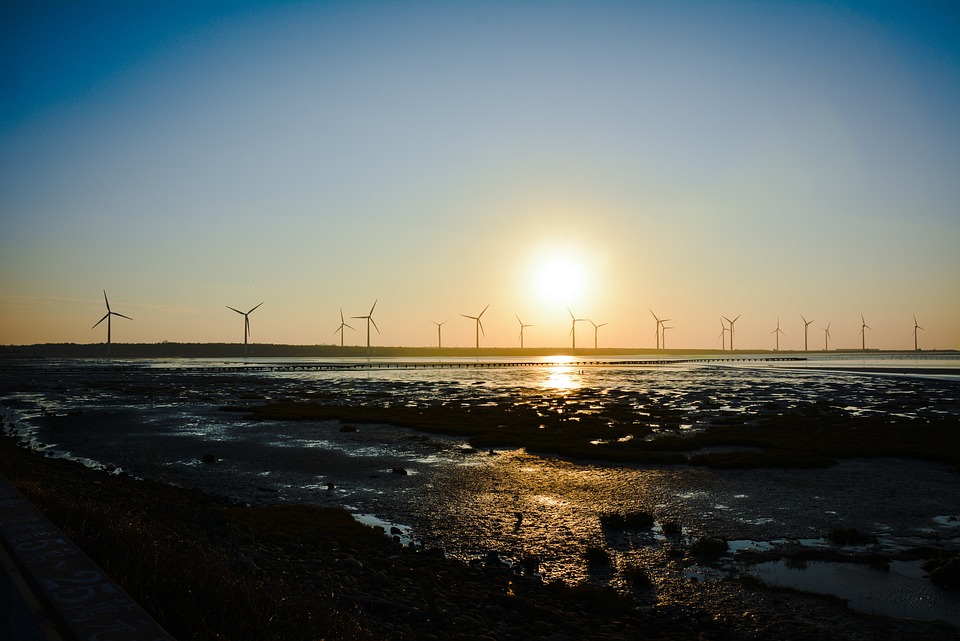The Growing Importance of Clean Energy
The world is facing an unprecedented climate crisis, with rising global temperatures and increasingly severe natural disasters threatening our very existence. The saying "the only constant is change" has never been more relevant as the world shifts towards a more sustainable future. The concept of clean energy is no longer a luxury, but a necessity. With the increasing awareness about climate change, governments, corporations, and individuals are uniting to adopt cleaner energy sources, reducing our reliance on fossil fuels and mitigating the devastating effects of climate change.
The Benefits of Clean Energy
The shift to clean energy has numerous benefits, both for our environment and our economies. Here are just a few:
Reduced Climate Change Impact
By switching to clean energy, we can significantly reduce our carbon footprint, slowing the rate of global warming, and minimizing the severity of natural disasters. This not only benefits the planet but also ensures a habitable environment for future generations.
Improved Air Quality
Clean energy sources like solar and wind power produce no greenhouse gas emissions, reducing air pollution and improving respiratory health. This is particularly critical in urban areas, where air pollution is a major cause of respiratory problems.
Economic Growth and Job Creation
The clean energy industry is creating new job opportunities and stimulating local economies. As the sector continues to grow, so too will the economic benefits, leading to a more sustainable and prosperous future.
Innovation and Technological Advancements
The push for clean energy drives innovation, encouraging the development of new technologies and energy-efficient solutions. This paves the way for even greater advancements in the future, creating a snowball effect that will propel us towards a sustainable world.
Global Efforts and Initiatives
Governments and organizations worldwide are taking decisive action to drive the transition to clean energy. Some notable initiatives include:
Paris Agreement (2015)
The Paris Agreement, a landmark international accord, sets a framework for countries to reduce greenhouse gas emissions and limit global warming to well below 2°C above pre-industrial levels.
Renewable Portfolio Standards (RPS)
Many countries have implemented RPS policies, mandating a certain percentage of renewable energy in their energy mix. This encourages companies to invest in clean energy and drives the transition to a low-carbon economy.
International Renewable Energy Agency (IRENA)
IRENA, an intergovernmental organization, provides a platform for countries to share knowledge, expertise, and best practices in the transition to a low-carbon future.
Challenges and Solutions
While the shift to clean energy is gaining momentum, there are still significant challenges to overcome. Here are some of the most pressing issues:
Cost and Infrastructure
The upfront costs of transitioning to clean energy can be daunting, as well as the need for significant infrastructure upgrades to support the shift. However, advances in technology have made clean energy more competitive, and government incentives can help ease the financial burden.
Energy Storage and Grid Integration
As the share of intermittent renewable energy sources like solar and wind increases, there is a need for efficient energy storage solutions and grid management technologies to ensure a stable supply.
Public Awareness and Education
Raising public awareness about the importance of clean energy and the benefits of the transition is crucial. Governments, corporations, and educational institutions must come together to educate and engage the public in this effort.
Conclusion
The transition to clean energy is no longer a goal, but a necessity. As the world continues to evolve, we must recognize the urgent need for climate action and work together towards a sustainable future. By understanding the benefits, global efforts, and challenges, we can overcome the obstacles and create a better tomorrow.
FAQs
Q: What is clean energy?
A: Clean energy refers to energy produced from renewable sources, such as solar, wind, hydro, and geothermal power, which emit significantly less greenhouse gases and pollutants compared to fossil fuels.
Q: How can I contribute to the transition to clean energy?
A: Simple actions like using energy-efficient appliances, reducing energy consumption, and supporting companies that invest in clean energy can make a significant difference. For more, check out local initiatives and online resources.
Q: Is the transition to clean energy too expensive?
A: While there are upfront costs associated with transitioning to clean energy, advances in technology have made it more competitive with fossil fuels. Additionally, government incentives and tax credits can help offset the costs.
Q: How can I stay informed about clean energy updates and news?
A: Follow reputable news sources, organizations, and online publications dedicated to the transition to clean energy. This will help you stay updated on the latest developments and advancements in the field.
Q: What can I do to support policies and initiatives promoting clean energy?
A: Engage with your local government representatives, sign petitions, participate in online campaigns, and support companies that prioritize clean energy. Every voice counts in this global effort!



_1.png?w=150&resize=150,150&ssl=1)
_1.png?w=150&resize=150,150&ssl=1)


